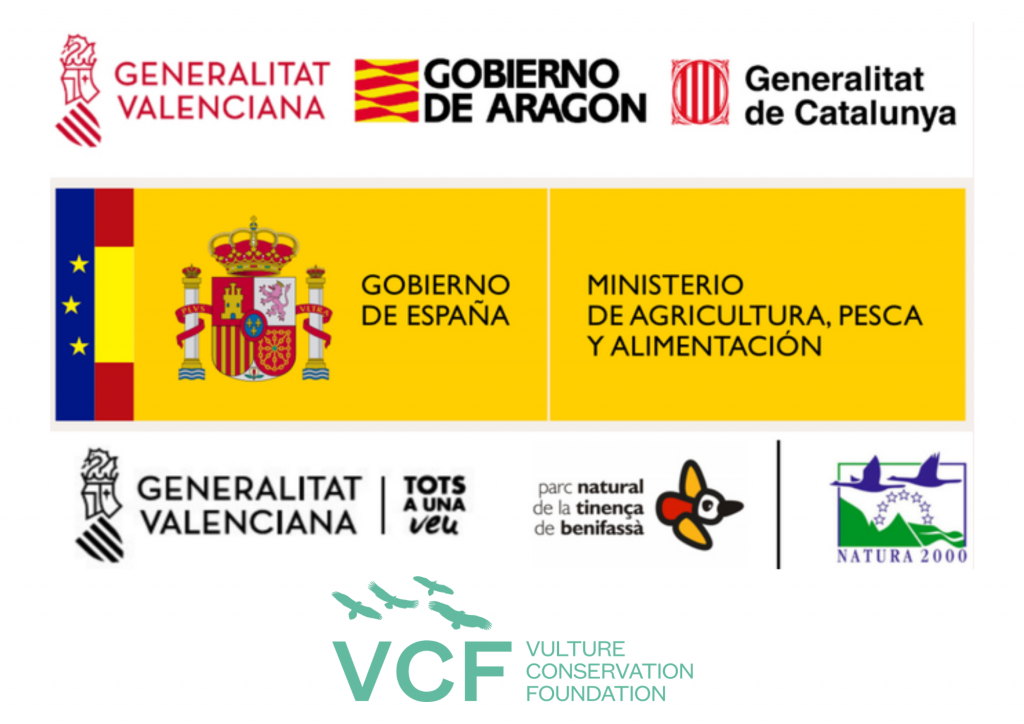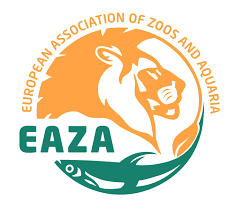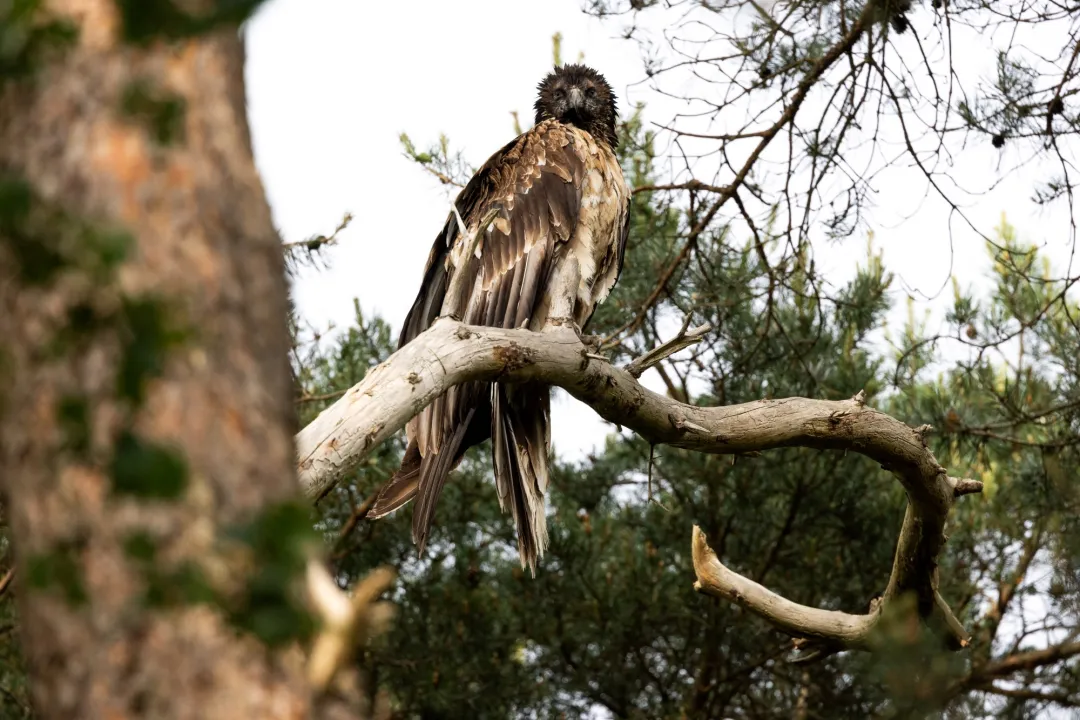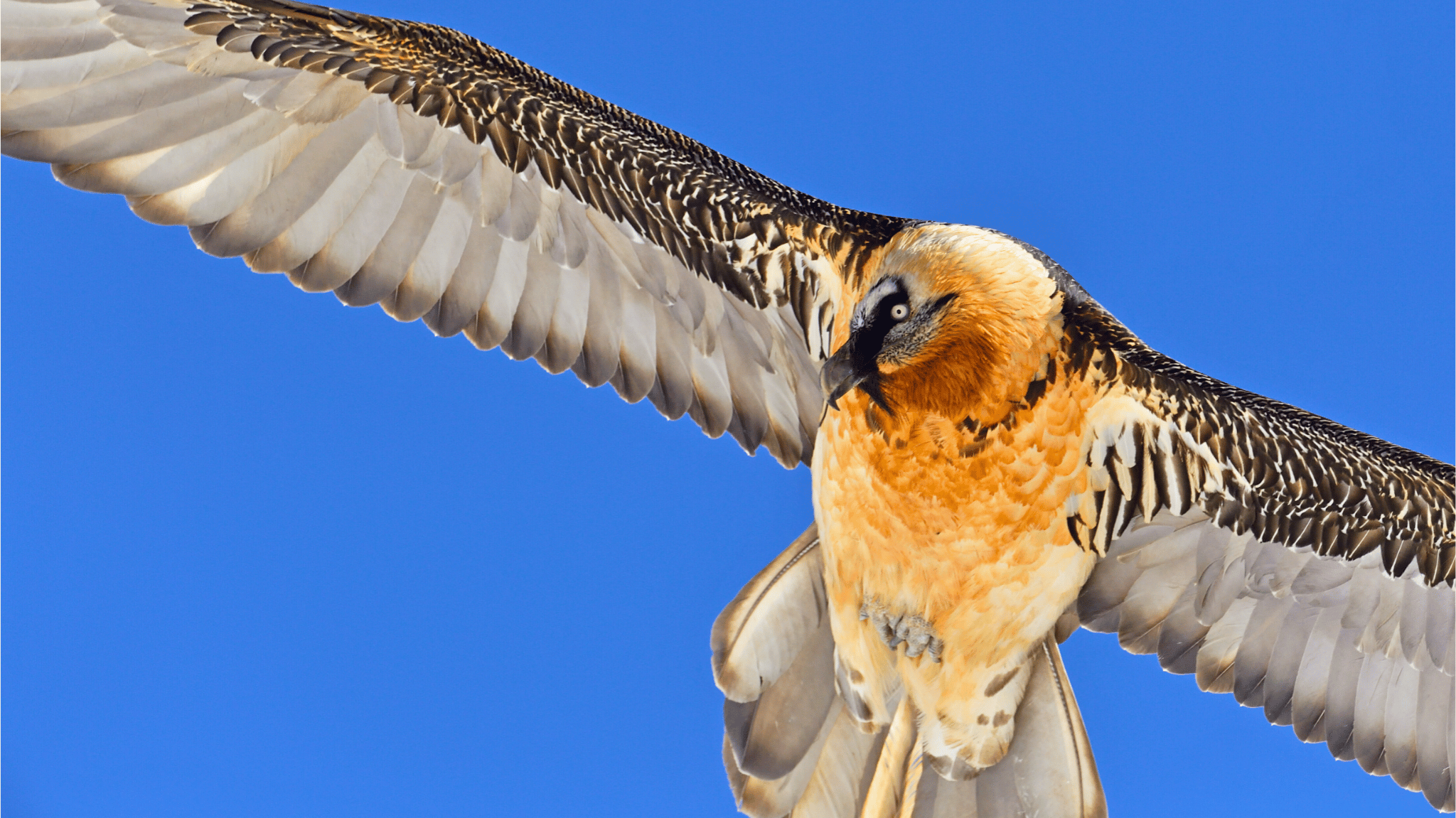The release season is in full swing and three juvenile Bearded Vulture (Gypaetus barbatus) females – Gea, Guaita and Genista – have just entered the scene.

The release event of these captive-bred juvenile vultures took place on 4 June 2024 and marked the 7th year in a row successfully releasing Bearded Vultures in the Tinença de Benifassà Natural Park in Spain.
Gea, Guaita and Genista started their new life in the wild
The three released vultures come from a captive breeding background. They all hatched in different facilities within the Bearded Vulture Vulture Captive Breeding Network, managed by us on behalf of EAZA’s European Endangered Species Programme (Bearded Vulture EEP).


Gea comes from Liberec Zoo, Czech Republic, Guaita from our breeding center in Guadalentín, Spain and Genista from Alpenzoo Innsbruck, Austria.
Captive-bred vultures are released in the wild when they are around 90 days usually in pairs or trios Releasing the vultures together ensures maximum social contact between the vultures and maximizes their chances of survival. Using the hacking method, we release birds at artificial nests in caves near their natural habitats, allowing them time to acclimatise to their new home and environment until they are ready to take their first flights a few weeks after the release.

All three females hatched in the last week of February 2024. Gea, the oldest one of the three, hatched on 22 February, Guaita on the 25th and Genista on the 29th.
At the release site, the juveniles were placed in artificial nests and over the coming weeks, they will master their flying skills and leave the artificial nests. The monitoring team will stay and keep a close eye on the young ladies, observing their behaviour, protecting them from threats and feeding them from a distance.
First signs of territorial settlement
The project to establish a thriving breeding population in Maestrazgo is making good progress. Now, including the newbies, seventeen birds have been released as a part of the reintroduction project in Maestrazgo since 2018.
Last year, In October 2023, after six years of releases in the Tinença de Benifassà, the first signs of territorial settlement of Bearded Vultures were documented, which were finally confirmed in winter.
Creating a new breeding group in Maestrazgo is crucial for connecting the Bearded Vulture populations in Andalusia, where the species is successfully reintroduced, and the Pyrenees. We hope these three new releases will help strengthen this connection.
Establishing a breeding population of Bearded Vultures takes time and patience. These birds take 5 to 7 years to become sexually mature, and they usually start breeding successfully at around 8 years old. Young vultures often travel long distances and explore new areas, but when they are ready to breed, they usually choose locations near where they hatched. In the case of birds reintroduced using the hacking method, which mimics their natural fledging process, when birds reach maturity, they tend to return near the release site, recognizing it as their hatching place.
Bearded Vultures previously released in Maestrazgo
Most of the vultures released in the Maestrazgo project are doing well, but not all have survived. Out of 17 Bearded Vultures released, three have died. Cocó, released in 2020, and Durall, released in 2021, were killed by Golden Eagles. Ereta, released in 2022, was electrocuted in March 2023 near Guadalajara.
Thanks to the GPS data we can track the real-time locations of the released birds and monitor their progress after they are released. Here below you can see the movements within the last 30 days of “Celest” and Dena” that were released in 2020 and 2021.

You can even follow the movements Celest and Dena and a few other Bearded Vultures we have released in Maestrazgo on our website, where the location data is automatically updated on the maps. Boira, one of the birds released in 2019, unfortunately lost GPS contact in 2022 but was recently seen at the Boumort National Reserve in Catalonia.
The Maestrazgo reintroduction project is led by the Generalitat of Valencia, in collaboration with the Autonomous Communities from Aragón and Catalonia, the Spanish Ministry of Agriculture, Fish, Food and Environment and the Vulture Conservation Foundation.
Big thank you to everyone involved. We wish the juvenile Bearded Vultures good luck in their new home!









